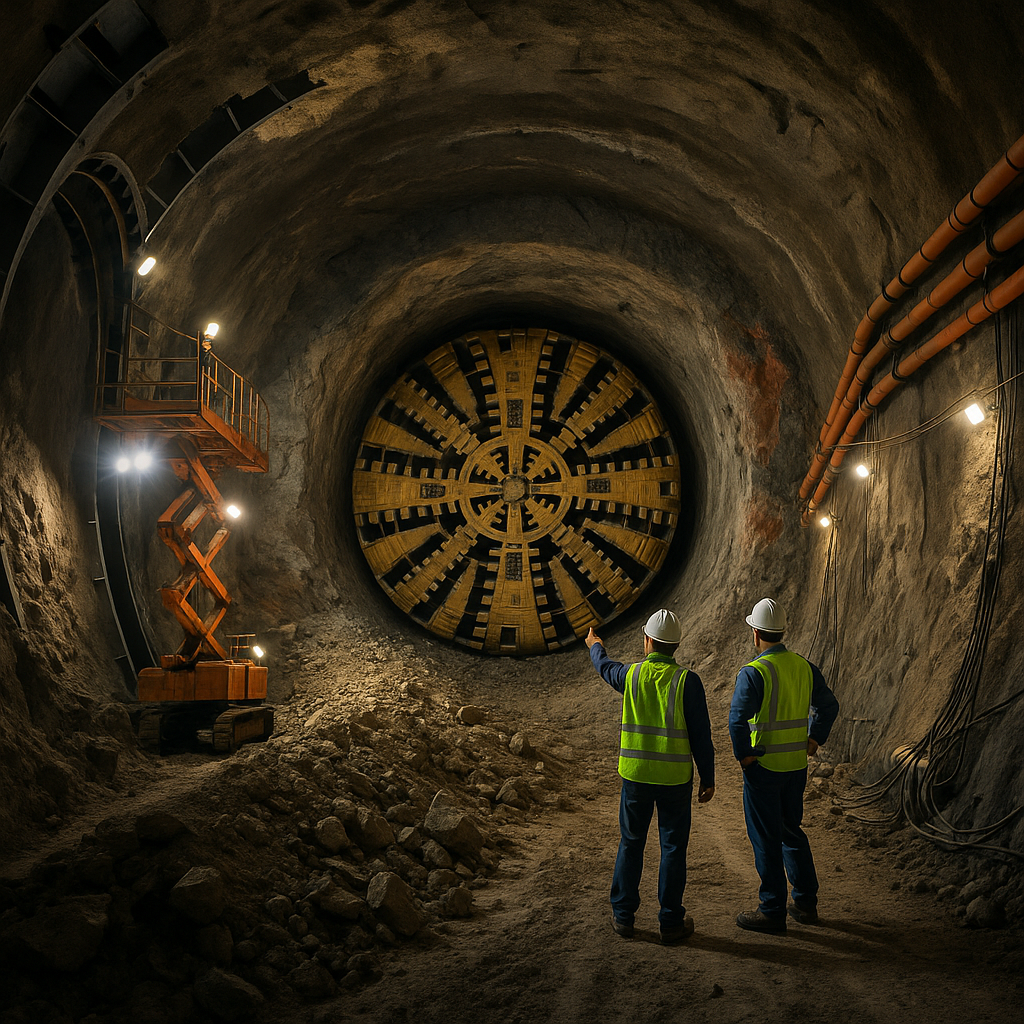India’s first bullet train project, a 2.7-kilometre tunnel section has been successfully completed as part of the ambitious Mumbai-Ahmedabad High-Speed Rail Corridor. This marks the first major breakthrough in the 21-kilometre-long tunnel connecting Bandra-Kurla Complex (BKC) in Mumbai to Shilphata in Thane.

Table of Contents
According to a release from the National High Speed Rail Corporation Limited (NHSRCL), the tunnel was constructed using the New Austrian Tunnelling Method (NATM), a cutting-edge technique for controlled excavation in urban and semi-urban terrains. This achievement showcases substantial progress in one of India’s most advanced infrastructure undertakings.Mumbai-Ahmedabad Bullet Train
Key Highlights:
- Tunnel Length: 21 km in total
- 16 km to be built using Tunnel Boring Machines (TBMs)
- 5 km to be constructed using NATM (especially between Shilphata and Ghansoli)
- Current Completion: 2.7 km of NATM section completed
- Undersea Tunnel: Includes a 7-km segment beneath Thane Creek
To expedite excavation, an Additionally Driven Intermediate Tunnel (ADIT) was constructed to allow tunnelling from both ends — Ghansoli and Shilphata. So far, about 1.62 km has been excavated from the Shilphata end, bringing the total NATM progress to 4.3 km.
Engineering Safety Measures:
NHSRCL has adopted comprehensive safety and monitoring protocols at the site, including:
- Ground settlement markers
- Piezometers
- Inclinometers
- Strain gauges
- Biometric access control systems
These technologies ensure minimal disruption to surrounding infrastructure and communities during tunnelling.
Also Read: Mumbai Underground Bullet Train Project Achieves Major Milestone with First Slab Casting
Project Funding & Timeline: Mumbai-Ahmedabad Bullet Train
- Total Cost: ₹1.08 lakh crore
- Funding Structure:
- Central Government: ₹10,000 crore
- Maharashtra & Gujarat: ₹5,000 crore each
- Japan: Remaining amount through a soft loan at 0.1% interest
Despite the current milestone, sources confirm that the Tunnel Boring Machines (TBMs) for the 16-km stretch are still awaited. However, launch shafts and equipment are already in place to begin once TBMs arrive.
This is a clear indicator that India’s dream of high-speed rail connectivity is inching closer to reality.
